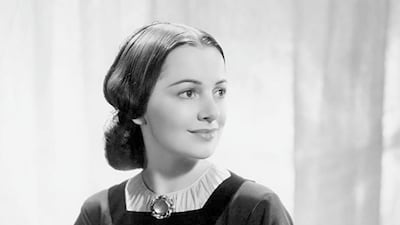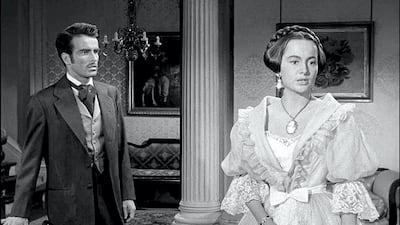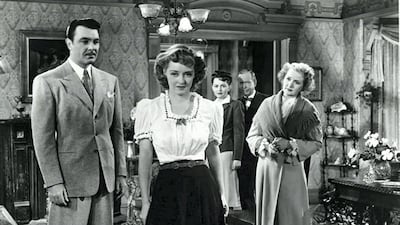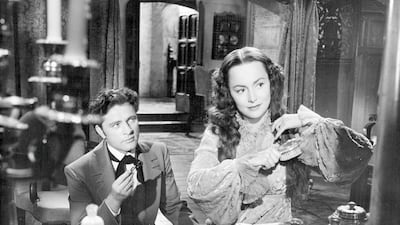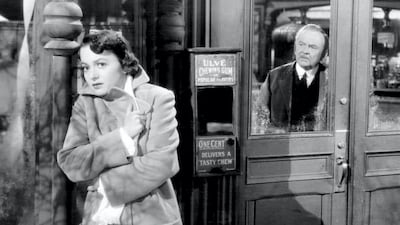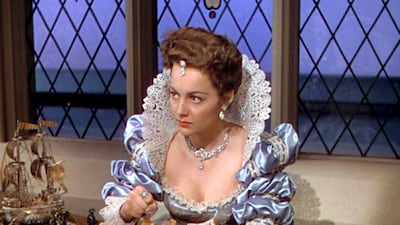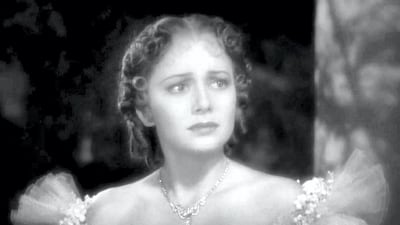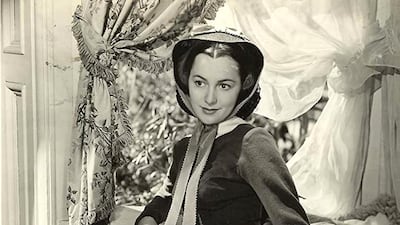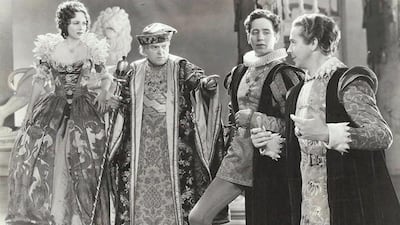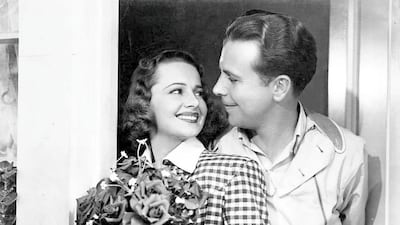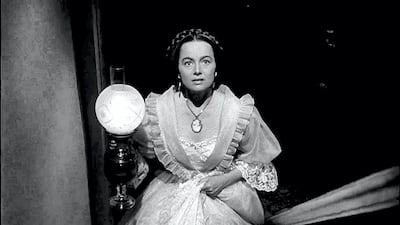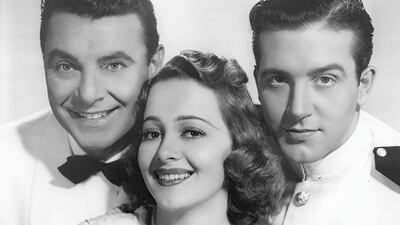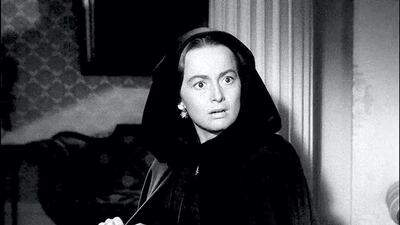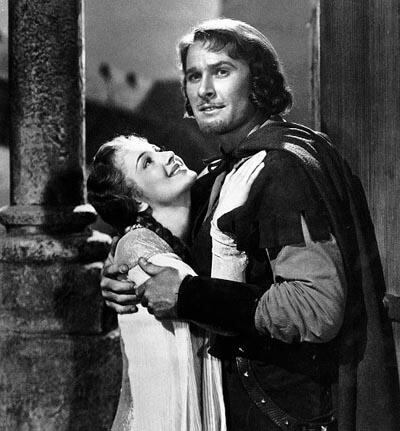Oscar winner Olivia de Havilland, best known as the kindly Melanie in Gone With the Wind, has died at the age of 104.
Publicist Lisa Goldberg said the actress died peacefully of natural causes on Sunday, July 26, at her home in Paris. Her funeral will be private.
The performer was among the last of the great stars from the studio age and was the last surviving major performer from Gone With the Wind.
The 1939 epic, based on Margaret Mitchell's best-selling Civil War novel and winner of 10 Academy Awards, is often ranked as the all-time box office champion (adjusting for inflation), but is now widely condemned for its glorified portrait of slavery.

The sister of actress Joan Fontaine, de Havilland won Oscars for To Each His Own and The Heiress, and appeared with Errol Flynn in several movies, including The Adventures of Robin Hood.
De Havilland was also known for successfully challenging Hollywood’s right to extend an actor’s contract without consent.
She was married twice and had two children. Her son, Benjamin Goodrich, was born in 1949 and died in Paris in October 1991, aged 42. She married French magazine editor Pierre Galante in 1955. The couple shared daughter Gisele Galante, who survives her actress mother.
Olivia de Havilland embodied old Hollywood, and shook it up
She was one of Hollywood's most glamorous stars and determined off-screen fighters. No one was better suited than de Havilland to play Melanie Wilkes in Gone With the Wind or more tenacious about the right to appear in the films of her choosing.
Fans and actors alike owe much to de Havilland, the performer who became, almost literally, a law unto herself.
During a career that spanned more than 70 years, de Havilland was praised in roles ranging from an unwed mother to a psychiatric inmate in The Snake Pit. The actress projected both a gentle, glowing warmth and a sense of resilience and mischief that made her uncommonly appealing.
The pinnacle of producer David O Selznick's career, Gone With the Wind had a dramatic and troubled back story. Three directors worked on the film, stars Vivien Leigh and Clark Gable were far more connected on screen than off and the fourth featured performer, Leslie Howard, was openly indifferent to the role of Ashley Wilkes, Melanie's husband.
But de Havilland, drawn to Melanie’s empathy and generosity, remembered the movie as “one of the happiest experiences I’ve ever had in my life. It was doing something I wanted to do, playing a character I loved and liked.”
A look back at de Havilland's varied career
She was otherwise known as Flynn's co-star in a series of dramas, Westerns and period pieces, most memorably as Maid Marian in The Adventures of Robin Hood.
But de Havilland also was a prototype for an actress too beautiful for her own good, typecast in romantic roles while desiring greater challenges. Her frustration finally led her to sue Warner Bros in 1943 when the studio tried to keep her under contract after it had expired, claiming she owed six more months because she had been suspended for refusing roles.
Her friend Bette Davis had failed to get out of her contract under similar conditions in the 1930s, but de Havilland prevailed, with the California Court of Appeals ruling that no studio could extend an agreement without the performer’s consent. The decision is still unofficially called the “De Havilland law” and made her as much a pioneer in the entertainment field as baseball star Curt Flood, who took on the game’s “reserve clause” binding players to teams, was in sports.
She moved to Paris in 1953, “at the insistence” of her then-husband, Galante, she told AP in 2016. She said that Hollywood had become a “dismal, tragic place” and she found no reason to return to the US.
“By 1951, television had already made such inroads on the income garnered by motion picture companies that the Golden Era which had prevailed until then was beginning to disintegrate,” she said.
In middle age and after, she appeared in several movies for television, including Roots and Charles and Diana, in which she portrayed the Queen Mother. She also co-starred with Davis in the macabre camp classic Hush … Hush, Sweet Charlotte and was menaced by a young James Caan in the 1964 chiller Lady in a Cage," condemning her tormenter as "one of the many bits of offal produced by the welfare state."
In 2009, she narrated a documentary about Alzheimer's, I Remember Better When I Paint.

Catherine Zeta-Jones played de Havilland in the 2017 FX miniseries about Davis and Joan Crawford, but de Havilland objected to being portrayed as a gossip and sued FX. The case was dismissed.
Fitting for one of Hollywood's most majestic stars, she spent her latter years residing in a town house near the Bois de Boulogne in Paris. One reason she liked Paris was because she could walk down the street without being bothered, at least until Gone With the Wind aired on French television.
In 2008, de Havilland received a National Medal of Arts and two years later was awarded France’s Legion of Honour.
De Havilland's early years and family life
She was born in Tokyo on July 1, 1916, the daughter of a British patent attorney. The actress’ parents separated when she was 3, and her mother brought her and her younger sister, Joan, to Saratoga, California. De Havilland’s own two marriages, to Galante and to Marcus Goodrich, ended in divorce.
She attributed her longevity to three Ls, “love, laughter and learning", and displayed a keen sense of humour — even calling her interviewer a “rascal” for a probing question in a rare interview with AP in 2016.
Starting out in Hollywood
Her acting ambitions dated back to stage performing at Mills College in Oakland, California. While preparing for a school production of A Midsummer Night's Dream, she went to Hollywood to see Max Reinhardt's rehearsals of the same comedy. She was asked by Reinhardt to read for Hermia's understudy, stayed with the production through her summer vacation and was given the role in the autumn.
Warner Bros wanted stage actors for their lavish 1934 production and chose de Havilland to co-star with Mickey Rooney, who played Puck.
“I wanted to be a stage actress,” she would recall. “Life sort of made the decision for me.”
By 1935, she had been paired with Flynn in the adventure Captain Blood and she worked with him often over the next decade. Well after much of the public had forgotten such releases as Dodge City and Santa Fe Trail, fans remained obsessed with how well Flynn and de Havilland — one of the screen's most attractive couples — got along in private life. Flynn was a compulsive womaniser even by Hollywood standards, but de Havilland insisted that her bond with the dashing actor remained platonic.
“Oh, Errol had such magnetism! There was nobody who did what he did better than he did,” de Havilland said. “We were lovers together so often on the screen that people could not accept that nothing had happened between us.”
The De Havilland-Fontaine feud
In the early 1940s, the De Havilland-Fontaine feud became public, a conflict aired by the 1941 Oscar race that placed them in competition for best actress. Fontaine was nominated for the Hitchcock thriller Suspicion while de Havilland was cited for Hold Back the Dawn, a drama co-written by Billy Wilder and starring de Havilland as a school teacher wooed by the unscrupulous Charles Boyer.
Asked by a gossip columnist if they ever fought, de Havilland responded, “Of course, we fight. What two sisters don’t battle?” Like a good Warner Bros melodrama, their relationship was a juicy narrative of supposed slights and snubs, from de Havilland reportedly refusing to congratulate Fontaine for winning the Oscar to Fontaine making a cutting crack about de Havilland’s poor choice of agents and husbands. In 2016, de Havilland broke a long silence and referred to her sister as a “dragon lady".
“On my part, it was always loving, but sometimes estranged and, in the later years, severed,” she said. “Dragon Lady, as I eventually decided to call her, was a brilliant, multi-talented person, but with an astigmatism in her perception of people and events which often caused her to react in an unfair and even injurious way."
